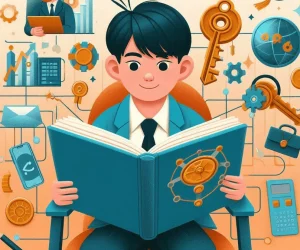1. Flash cards
Flash Cards are set of cards bearing information, on either one or both sides, and can be used effectively in classrooms or at home. Learning math through flash cards is a lot of fun, because of –
Simplicity – The simplicity of math flash cards has proved it to be one of the most effective ways of learning math facts.
Portability- Be it travelling, or waiting for school bus, or at doctor’s clinic, flash cards can be taken everywhere. It helps kids to utilize their spare time efficiently.
Motivation and Challenge – Flash Cards are a lot of fun. Parents and teachers, disguise study time as play time, by setting up flash card competitions and motivating them with rewards.
For e.g. Numbers Flash Card by Playskool
2. Puzzles
A puzzle is a problem that tests the ingenuity of the solver. It’s observed that kids, who start solving puzzles between 2 to 4, develop better ability to understand problems involving physical spaces, shapes, or forms.
Kids, who enjoy solving these puzzles, develop analytical skills and hence bear a positive attitude towards learning math skills.
They no longer fear math or shows resonance towards math practice. Puzzles teach them to be creative and persistent.
For e.g. Eeboo puzzles on numbers
3. Games
We all know that kids enjoy playing games and our experience tells us that Math is always more fun when it’s a game.
Benefits of Using Games
No resistance – kids freely choose to participate and enjoy playing
Increased learning – games provide increased interaction between children, opportunities to test intuitive ideas and problem solving strategies
Keeps challenging – Games can allow children to operate at different levels of thinking and motivates them to learn advanced concepts too.
For e.g. interesting math games by ThinkFun
4. Online learning resources (Websites)
Availability of plethora of content at a click encourages kids to adopt online learning. Some of the attractive features of online learning are:
Interactive Content – encourage involvement of kids.
Colourful Visualization – rich pictorial content makes it fun for kids.
24X7 Access – Increases study time as kids can always access the content online, anytime.
Monitor performance – Parents can access comprehensive reports on their child’s progress. This gives parents an important feedback on their kid’s progress.
For e.g. Cool Math, Splash Math and for more options go through with these Google organic search results http://bit.ly/15yytvU
5. Apps
There apps are not only fun but are educational and can actually benefit the kids’ math learning.
Interactivity – Because apps are interactive, they are much preferred to any passive activity
Improves hand-eye coordination – Several math apps involve tracing lines, shapes and numbers or involve games that challenge kids’ hand-eye coordination, all important skills for healthy development.
Apps are portable – Road trips or long haul flights provide perfect opportunity to whip out smartphone or tablet to little minds busy and entertained with educational math lessons.
For e.g. Moose Math






More Stories
How to Empower Elementary Children with Confidence and Joy in Education
Why Teaching Programming to Children Is Essential for the Future
Which cartoon characters on coloring pages are great role models for children?